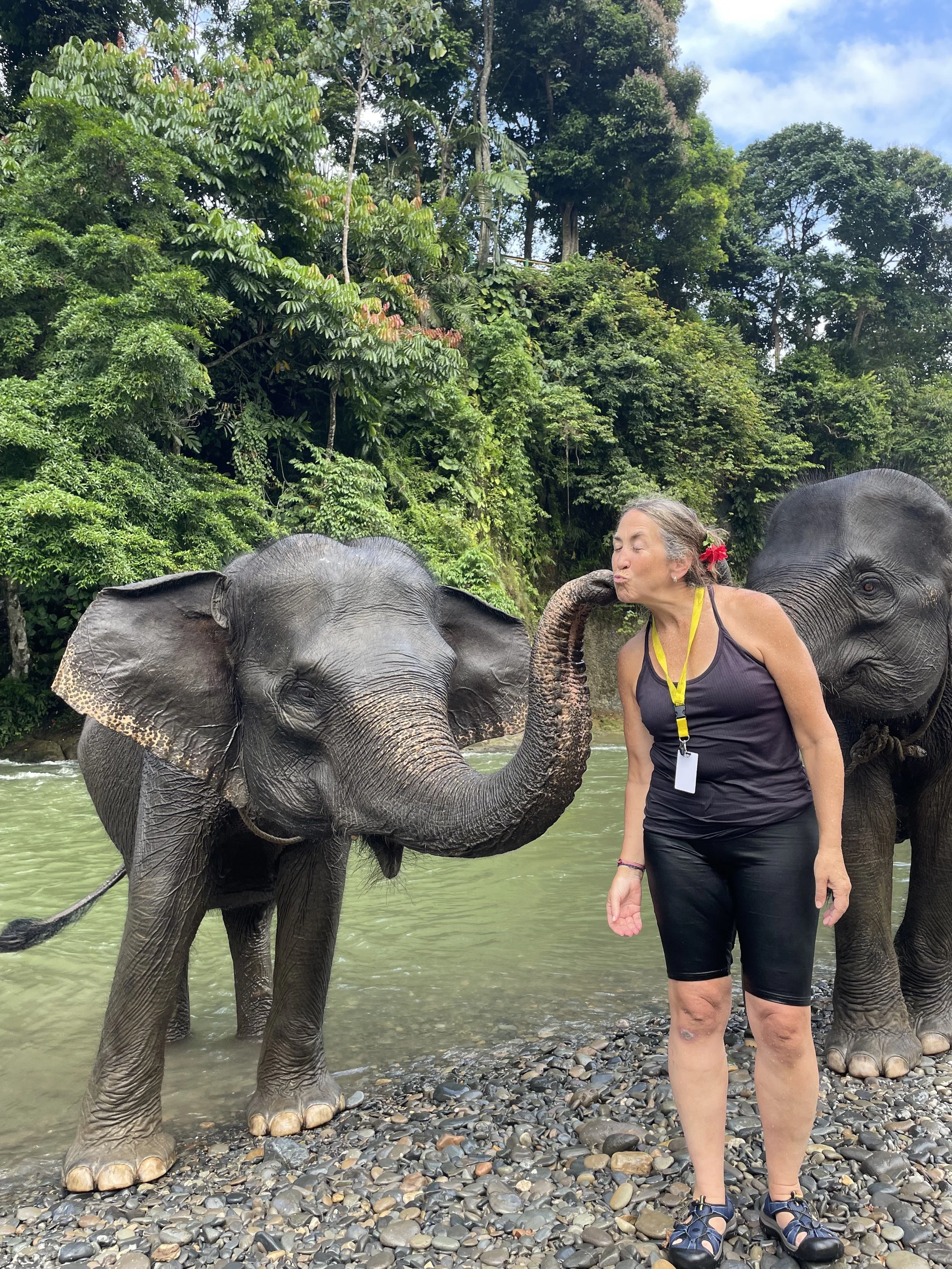Give an Elephant a Bath: Ethical or Exploitative?
At Tangkahan Village, visitors can pay to bathe the elephants.
IN INDONESIA, IF WILD ELEPHANTS make a habit of foraging in a corn field or a palm or rubber plantation, the elephants used to be shot. An alternative is to send them to a jungle community like Tangkahan Village, North Sumatra, Indonesia.
At Tangkahan, the indigenous Batak people have established an eco-tourism business around their herd of nine Asian elephants. According to my guide, Bim, 80% of the village's income once came from illegal logging, which has now ceased entirely.
The Indonesian government provided the elephants and guide training. It continues to manage the program, including replacing the sole breeding male every couple of years, to support rural development.
Every day, the elephants are led from their corral at 8:30AM for a river bath; tourists pay 150,000 rupiah, about $9, to help scrub. The elephants seem to love it — they lean into the scrub brushes and shift their bodies to allow better access.
The herd then roams the jungle for the day, managed by local guides, and comes out covered in dust. So there's another bath at 3:30PM, then a dinner of leaves and back into the corral for the night.
Hats off to Suri, the matriarch, who is 54 and still calving. The calves nurse til about age 7.
Bim and the stump of a banyan tree that was illegally logged before Tangkahan embraced eco-tourism. “This is a memorial,” he said.
Throughout Southeast Asia, there are wild animal sanctuaries with a wide variety of backstories. I try to weigh the ethical considerations of each one I’m interested in visiting.
My preferred option — habitat protection for species like elephants, orangutans, and proboscis monkeys — doesn’t seem to be on the table. Palm plantations in particular are squeezing these animals out of their forest and mangrove homes. With the Indonesian government mandating an increase in palm-based biodiesel fuel in 2026, the problem is getting worse, not better.
So I visit sanctuaries that, in a fairer world, wouldn’t be needed at all. Bim expressed it well. “The plantations, the farms, they are beneficial. But there could be more balance.”
Given the givens, the scales of justice in my head decided that the benefits of the Tangkahan model outweigh the downsides, which is why I went.
I declined a guide’s offer of a shower by elephant trunk, since I was drawing the line at "animal tricks." But then I couldn't resist getting a kiss. And the guide, a bit of a prankster, had an elephant hose me down anyway.
I gave that elephant a very hearty nose rub indeed.
A clean and apparently happy elephant with her new human buddy.
While the wee one supplied kisses, the other elephant (the mom?) poked the back of my head.



